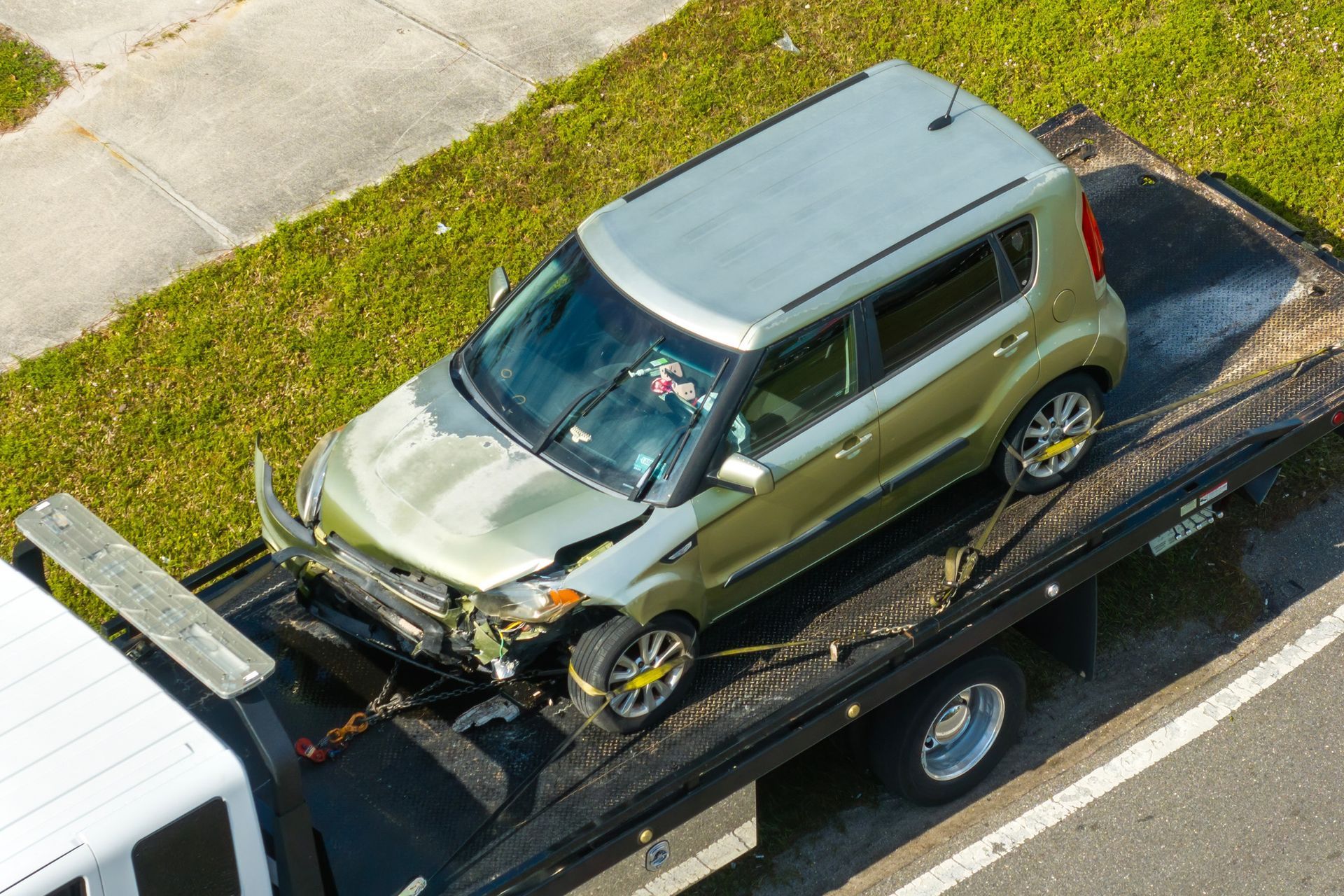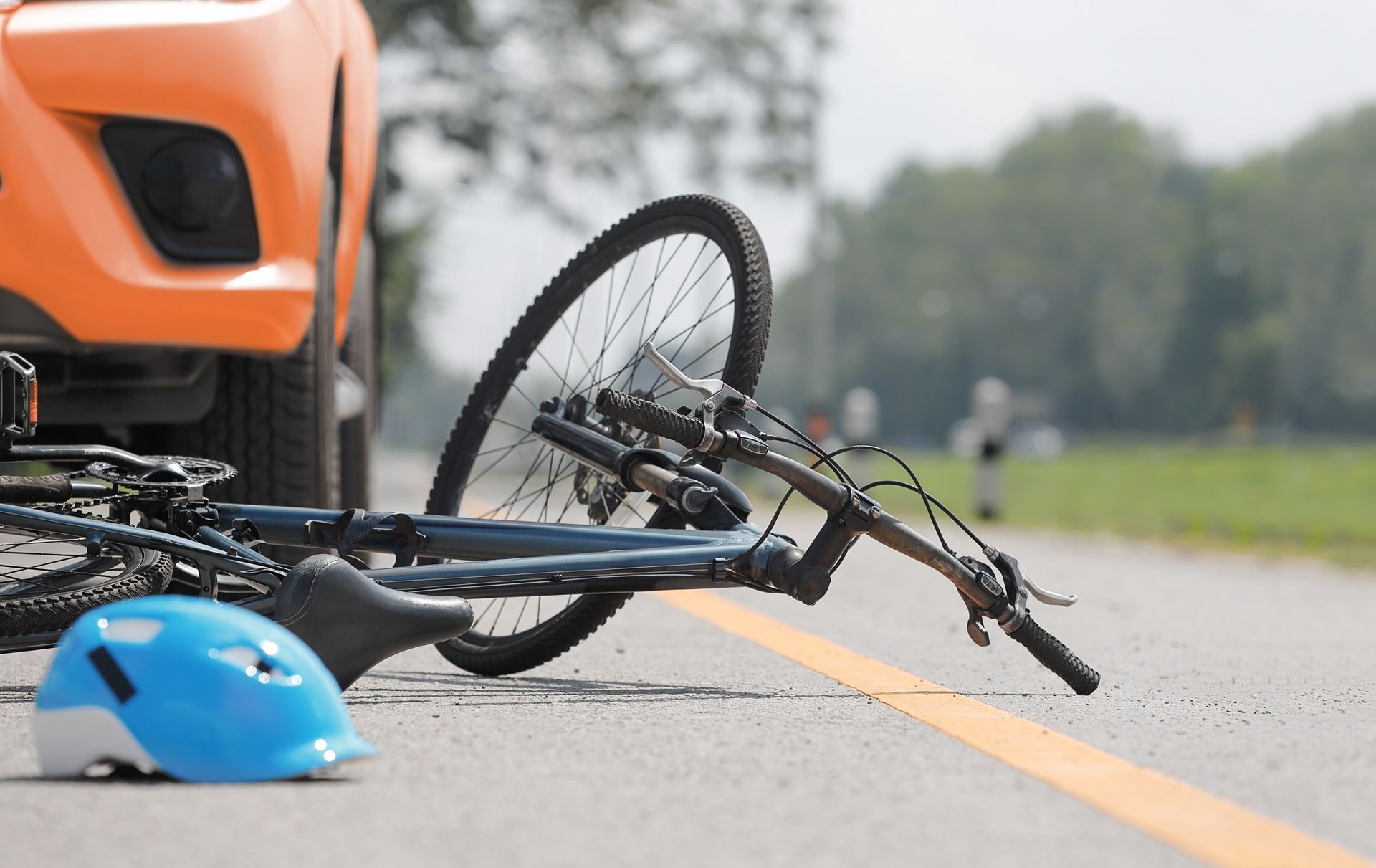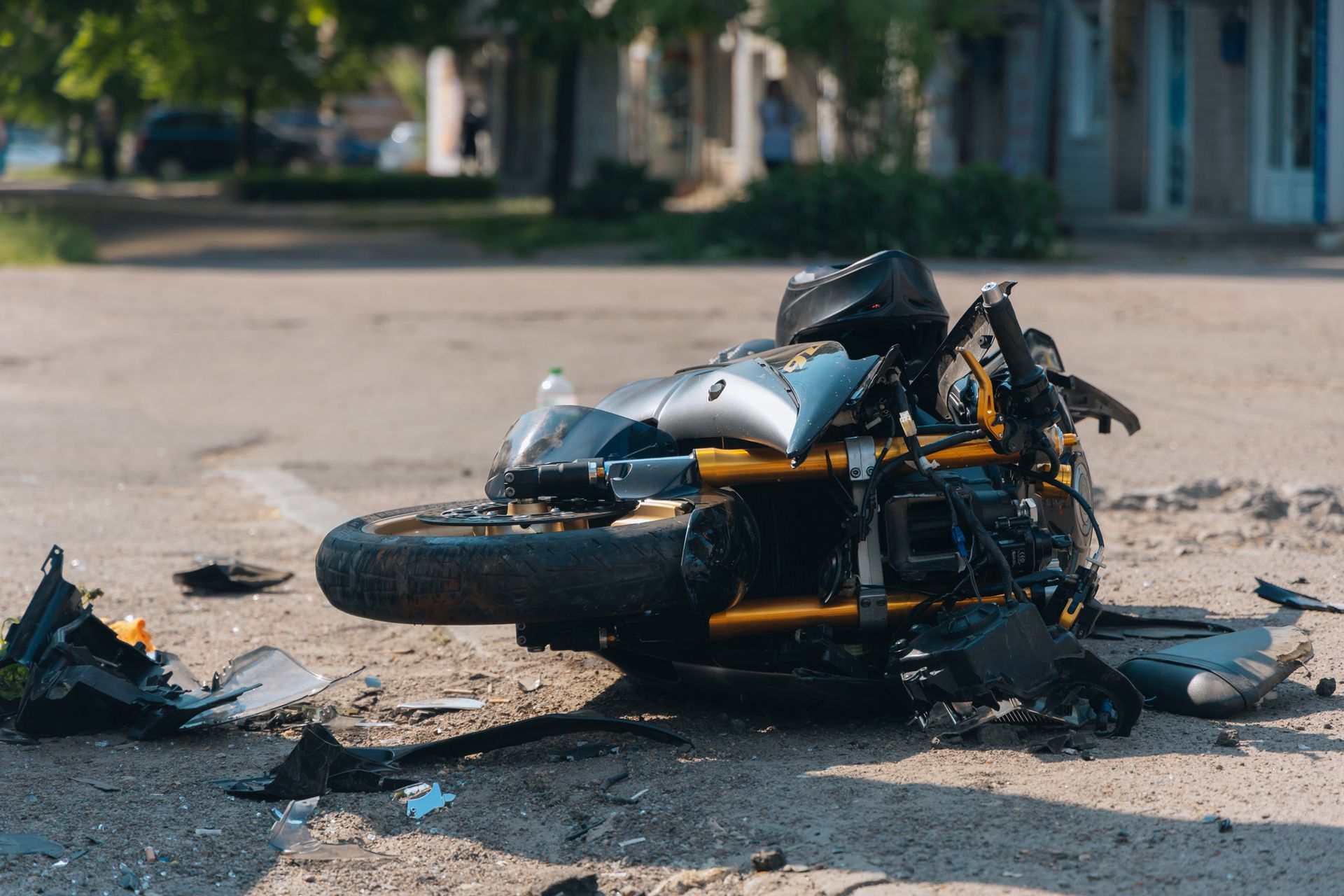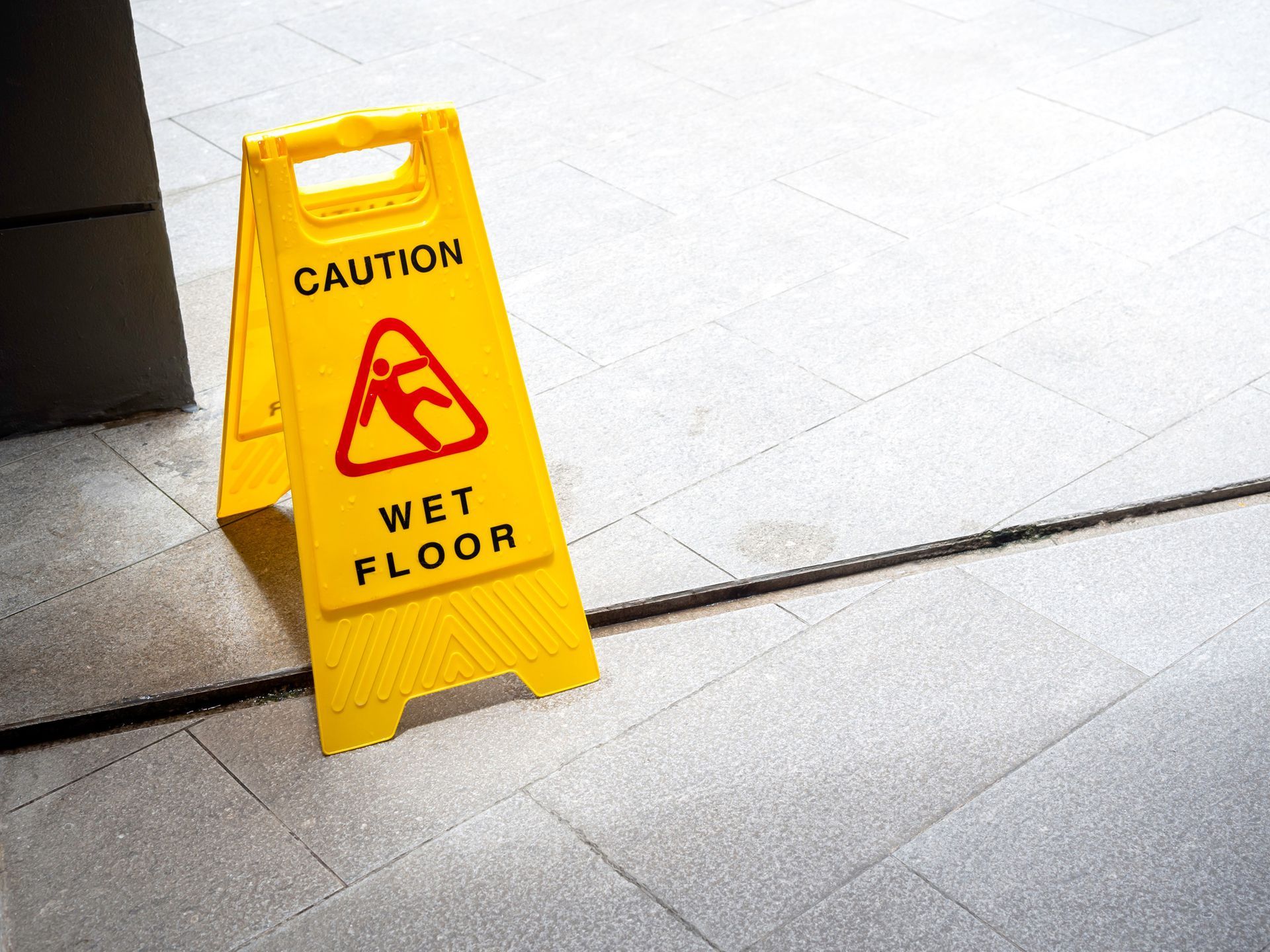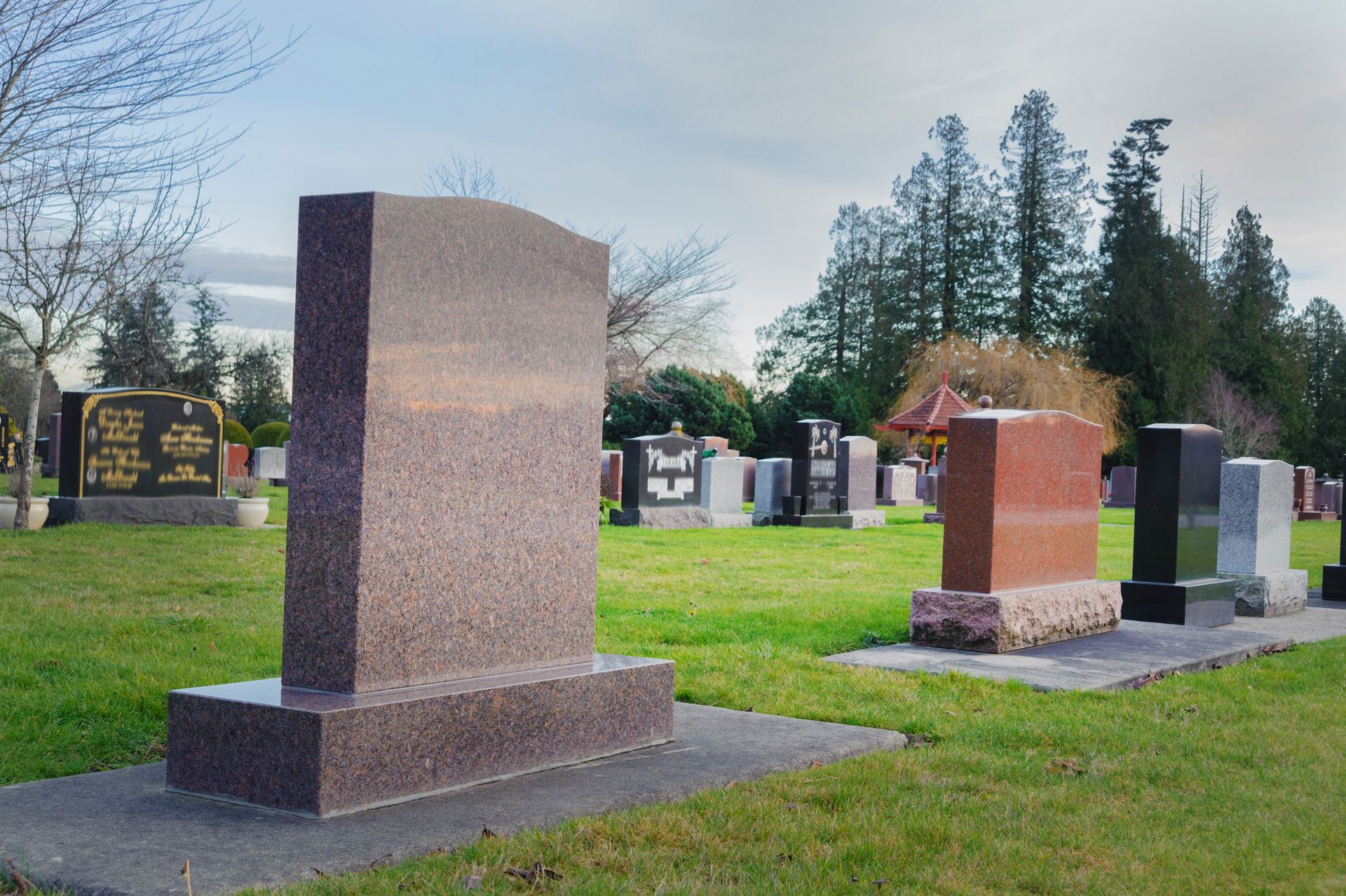Personal Injury Attorney In Yonkers & Manhattan
Injured? We Can Help You Seek Compensation
If you have been hurt, you may be entitled to compensation for your pain and suffering. Our dedicated team at Sayegh & Sayegh, P.C. realizes that you shouldn’t have to spend your time and energy fighting for what you deserve when you could be spending your time resting and recuperating.
When you need the support of an experienced and knowledgeable accident attorney in Yonkers, NY, you can rely on our firm to help you cover your bases.
Contact Sayegh & Sayegh, P.C. to schedule a consultation with a lawyer today. 914-968-5800
Case Types

How Can Yonkers and Dutchess County Personal Injury Lawyers Help You?
A personal injury is any injury you suffer that resulted directly or indirectly from recklessness, carelessness, negligence, or intentional wrongdoing. Depending on the circumstances of your injury and the accident or incident surrounding it, your injuries could range from relatively mild, with little impact beyond medical costs and minor property repairs, to catastrophic, with lifelong effects or even tragic consequences.
Regardless of the degree of severity of your personal injury, you need and deserve representation from an attorney who can help you obtain the compensation to which you are entitled, and more importantly, guide you with comfort and unwavering support through every step of your case. Only a qualified personal injury attorney understands how to draw upon years of experience helping other victims of negligence in order to advocate for your interests.
Types of personal injury cases and the services your Yonkers, NY attorney provides
Injuries can result from all types of accidents and incidents. Generally, in order to be considered personal injuries in the legal sense, they will fall into at least one of the following categories:
- Motor vehicle accidents – Injuries from collisions involving cars, trucks, motorcycles, bicycles, boats, public transport, and/or pedestrians that occur due to negligent driving, unsafe road conditions, and/or vehicle malfunction
- Medical malpractice – Injuries or illnesses that result from negligent action or inaction by a surgeon, doctor, nurse, pharmacist, hospital, or any other industry professional/entity
- Products liability – Injuries that result from the use of a product that is inherently unsafe due to design, improperly manufactured, or sold lacking adequate instructions for safe usage
- Premises liability – Injuries resulting from accidents, sometimes called slip-and-falls, that occur on public or private property due to inherently hazardous conditions, inadequate maintenance, lack of proper signage, or other failures to create a safe environment
Whether or not your injury falls neatly into one of these categories, always consult a lawyer when considering taking legal action in Dutchess County or elsewhere in New York. A good attorney can evaluate your case, use the most effective legal tools, and present a solid case that gets the results you want.
Yonkers, New York Personal injury claim timeline and obtaining compensation
The timeline of your case depends largely on its details, and only your attorney can give you an accurate estimate of how long it might take from beginning to end. That said, after filing your claim, your personal injury lawsuit should entail the following phases:
Initial investigation/gathering evidence
Official discovery process
Settlement negotiations
Trial and issuing of judgment (if no settlement is reached)
Note that the majority of cases end in settlement, and it is often beneficial to avoid trial. You can obtain the same type of compensation in a settlement that you would in a trial, including coverage of medical costs, payment to repair or replace property, lost wages, and consideration for emotional pain and suffering.
There are an estimated 2,433,000 injuries every year in the US as result of car crashes, the leading cause of injuries.
Add to that the thousands of injuries caused by falls, medical malpractice, violent crimes or even dog bites and the number goes up dramatically.
No matter the cause, if you have been injured as the result of someone else’s negligence or intentional act, you may have a claim for personal injury.
Knowing the timeline in a personal injury case helps you understand what to expect and what you need to do:
1. You are in an Accident and Have Been Injured
If you’ve been in a car accident, make sure you gather information from the other driver, such as driver’s license and their name and phone number.
If there are witnesses, get their information as well.
Take pictures of damage to the vehicles and anything else that’s pertinent, such as traffic signs, and any visible injuries. Call the police: they will complete a report that is valuable when you file your claim.
If you’ve been injured as the result of a slip and fall, collect witnesses’ names and contact info, make sure you notify the property owner or manager of the property where the injury occurred and ask for a copy of their incident/accident report.
Of course, if your injury was sustained as the result of a violent act, call the police immediately.
2. Get Medical Attention
In the event of a serious injury ranging from broken bones to head or chest trauma, call 911 right away.
Remember, though, that many injuries are not obvious right away.
Whiplash, soft tissue injuries (damage to tendons, ligaments or muscles) and even brain injuries may take hours or days to show up or become painful.
For that reason, you should seek medical attention as soon as possible.
Here is another good reason to get to an emergency room or visit your physician quickly: if you don’t, the insurance company will question whether you were really injured or not and may deny your claim.
Always follow medical advice and make sure to get the care you need in cases of new or ongoing symptoms.
3. Talk to a Personal Injury Attorney
The best way to find out if you have a reasonable case to file a lawsuit is to talk to a lawyer with extensive personal injury claims experience.
In most states, personal injury attorneys work on contingency, meaning that you do not have to pay any up-front legal fees.
Your lawyer is paid based on a percentage of the settlement you receive upon successful conclusion of your claim.
Typically, that is 33-1/3 to 40 percent of the recovery.
Compensation generally includes current and future medical costs, lost wages, loss of earning capacity and more.
It is in your best interest to find out the merits of your case before accepting a settlement from the insurance company. Your total compensation may be much higher than what you are being offered, even after legal fees.
4. Investigate Claim and Medical Records
Once hired, your personal injury attorney will start by asking you many questions.
He or she needs to know everything in order to mount the best possible case on your behalf.
Honesty is the best policy here.
Whether you are queried by the lawyer or their intake specialist, you should answer all questions, no matter how personal or irrelevant they may seem.
In addition to being asked about the accident itself, you may be asked about any past or chronic medical conditions, the type of work you do, and even your financial situation (in particular, if you have any large debts).
Your attorney will also collect all medical information related to your accident, including info on the physicians you saw, what your treatment was and any pharmaceuticals that may have been prescribed.
You should also keep your attorney up-to-date on any and all ongoing medical treatments you receive.
Insurance companies will look for anything to counter your claim, so it is critical that your lawyer is kept informed.
5. Demand a Settlement or File an Insurance Claim
A settlement is a monetary reimbursement that is agreed upon between you and your insurance company without the need to go to trial.
A good attorney will know when it’s best to accept and when it’s better to put up a fight in court.
What happens next depends on the type of accident (i.e., car accident, slip-and-fall, medical malpractice, etc.), and who is involved. If it is going through an insurance company, then the claims adjuster will investigate and negotiate a settlement.
Otherwise, a “demand letter” is sent that specifies the settlement amount based on liability and what compensation is being demanded.
Typically, there is a counteroffer. At this point, your attorney will discuss your options with you, including the cost of going to trial, and the likelihood of success.
6. Filing a Lawsuit
If you and your attorney do not feel that the settlement offered is fair and adequate, a lawsuit may be filed.
Often, this will result in the insurance company coming up with a better offer that you find acceptable. If not, your attorney will file a Complaint in the appropriate court in which the accident occurred and a Summons, Complaint and other information will be served to the Defendant.
Here is where timelines are important, as all parties have specified periods in which they must file and respond.
At this point, you are no longer in negotiation, but rather in litigation.
7. The Discovery Phase
Discovery is a procedure in which both sides (plaintiff and defendant) obtain evidence.
This includes “interrogatories,” i.e., straightforward background information such as date of birth, current and former addresses and employments history; details about the accident; what injuries you suffered; and the medical treatment you received and from what providers.
“Request for Production” means producing actual documents, such as copies of repair bills, medical bills, x-rays and medical records, insurance policies, police reports and any photos of the accident.
A “request for admissions” is simply that: anything that a party admitted to.
Lastly, “depositions” are testimonies given under oath and may include those given by you and any experts brought in by either your attorney or the opposing lawyer.
8. Mediation or Arbitration
This is the last option before going to trial.
It basically is a last-ditch effort to reach a settlement through alternative dispute resolution (ADR). In mediation, attorneys for both sides agree upon an impartial mediator to help reach an amicable settlement.
The mediator does not make a decision but rather acts as a facilitator.
Hopefully, a settlement can be reached and trial can be avoided. A settlement reached through mediation is not binding.
The other alternative is arbitration.
The arbitration process is similar to mediation, however, any decision reached through arbitration is conclusive, meaning that any award made is final and binding.
9. Trial
If agreement cannot be reached through negotiations or alternative dispute resolution, trial becomes necessary.
A jury will decide on a settlement amount after they have seen the evidence and heard all testimonies.
Before taking this critical step, your attorney will and should discuss with you all potential benefits and risks of a trial.
Outcomes are never certain, nor is how long the process will take.
Experienced Yonkers Personal Injury Attorneys Protect Your Rights
Personal injury cases are very complex.
Whether you live in Westchester, Rockland, Bronx, Dutchess, Putnam, Orange, or Ulster counties, the skilled New York personal injury lawyers of Sayegh & Sayegh can help you seek fair compensation when you suffer injury caused by negligence. Contact us today at 914-968-5800.
Recovering personal injury damages in Yonkers
Personal injury lawsuits are filed against persons or entities who have exhibited negligence and as a result a person was injured, killed or suffered damages to their property.
In personal injury claims, compensation is often awarded to pay for damages such as medical bills, missed time from work, and physical rehabilitation.
The two types of damages in personal injury cases are compensatory damages and punitive damages.
Compensatory damages are intended to compensate the plaintiff (the person who was injured), for their losses, and punitive damages are designed to punish a defendant and deter others from acting in the same manner.
Compensatory damages are the most common type of damages awarded in a personal injury case.
The difference between special and general damages
The two types of compensatory damages in a personal injury case are called general and special damages.
Special damages, which refers to damages that are easily calculated, can include the following:
- Medical bills. High medical bills after an injury are common in a personal injury case. Compensatory damages can pay for hospital and doctor visits, diagnostic tests, physical therapy and the estimated costs of future rehabilitation or treatment.
- Lost income. When an injury causes a person to miss time from work, they can seek compensation for lost wages during the time they were unable to work.
- Property damage. A plaintiff can be awarded compensation for damages to their property, such as automobile damage. Sometimes the valuation of property calls for professional appraisers to be brought in.
General damages are much more subjective and difficult to put a dollar amount on.
Some of the most common types of general damages include:
- Pain and suffering. Suffering a severe injury can be a terrifying experience, and the psychological effects on an individual can be devastating. When a person’s enjoyment of life is severely decreased because of an injury, they can seek compensation for their pain and suffering.
- Mental illness and emotional distress. Common symptoms include shock, anxiety, confusion, depression, humiliation and sorrow. When these symptoms manifest physically, such as in loss of appetite or ulcers, the plaintiff may seek compensation.
Contact a personal injury lawyer in Yonkers
At Sayegh & Sayegh, P.C., we understand how difficult it can be to recover from a serious accident.
For this reason, we do everything we can to take the pressure off our clients when pursuing a personal injury claim while we fight for their rights to fair compensation.
We have years of experience in personal injury law and we’ve negotiated several multi-million dollar personal injury settlements.
If you or a loved one has been injured and you live in the Yonkers area, call us at 914-968-5800 or contact our firm today to schedule a consultation with a Yonkers personal injury lawyer.
What are Punitive Damages?
When a person is injured in New York because of the negligence or wrongdoing of another person or entity, the civil litigation system enables them to seek compensation for their injuries and damages.
Most often, people who file personal injury lawsuits in New York are awarded with compensatory damages.
This means that plaintiffs are compensated for damages such as injuries, lost wages and property loss.
However, in rare cases, when the action that caused the injury was not only careless or negligent, but morally reprehensible, actuated by evil or pre-meditated, the law allows for plaintiffs to seek compensation for punitive damages.
Punitive damages allow plaintiffs to seek compensation awards that can exceed the amount estimated in damages and costs from their injuries.
The idea behind punitive damages is not to remedy the plaintiff’s damages, but rather to deter people from acting in the same manner in the future by issuing an excessive monetary punishment for grossly negligent acts.
How are punitive damages calculated?
While the awards for punitive damages can be substantial, there is no clear-cut way to determine exactly how much they will be.
Some of the questions juries will consider when calculating punitive damages include:
- The severity of the injuries suffered and/or the extent of damage to property.
- The nature of the defendant’s actions.
- The dollar amount that the jury believes it will take to deter the defendant and public from committing similar actions.
It’s important to remember that punitive damages are only awarded in extreme situations when an especially immoral, reckless or deceitful act was committed.
Some common examples include theft, battery and fraud.
Also, in New York, the general restriction for compensation awards for punitive damages is that they do not exceed 10 times the amount of actual damages suffered by the injured party.
However, this is not a firm law and often exceptions are made.
If you or a loved one was injured because of the gross negligence of another person or entity, it’s important you contact an experienced personal injury lawyer in Yonkers to help you with your case, especially if you believe you may be eligible for punitive damages.
Choose a reputable Yonkers personal injury law firm to represent you in your case
Sayegh & Sayegh, P.C. has negotiated several multi-million dollar personal injury settlements. Invest in your own future by choosing the personal accident lawyer who will fight for your rights.
We don’t treat our clients like case numbers because we care – and also because we know that approach won’t deliver the results you deserve. We dig into the specific details of your particular case, and take care to prepare the kind of representation that will most likely affect the best possible outcome.
To learn more about personal injury laws in New York, or to initiate a claim, consult the attorneys of Sayegh & Sayegh, P.C. in Hopewell Junction. With more than 85 years of combined experience, we understand how to help you obtain the compensation you deserve. Call 914-968-5800 or contact us online to learn more about our services.



